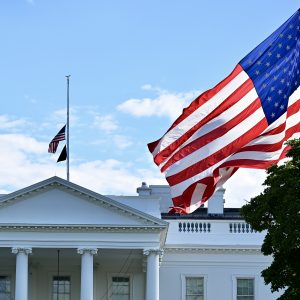Norway, Ireland, Spain recognize Palestinian state
Currently, 143 of 193 UN member states recognize Palestine and within the EU, eight of the 27 members recognize it as state
Muslim Network TV Desk
ANKARA – Three European countries—Norway, Ireland, and Spain—have taken a significant step in the Middle East peace process by fomally recognizing Palestine as a state. This decision, set to take effect on May 28, comes amid Israeli aggression and a dire humanitarian crisis in the region.
Norway’s Prime Minister, Jonas Gahr Store, emphasized the importance of this move in his announcement.
“In the midst of a war, with tens of thousands killed and injured, we must keep alive the only alternative that offers a political solution for Israelis and Palestinians alike: Two states, living side by side, in peace and security,” Store stated.
He reiterated that a two-state solution is essential for lasting peace in the Middle East, and that this recognition is a crucial step toward that goal.
Ireland’s Prime Minister, Simon Harris, echoed this sentiment, expressing confidence that other countries would follow their lead.
“Each of us will now undertake whatever national steps are necessary to give effect to that decision,” Harris said during a news conference.
“I’m confident that further countries will join us in taking this important step in the coming weeks.”
In Spain, Prime Minister Pedro Sanchez addressed the parliament, criticizing Israeli Prime Minister Benjamin Netanyahu’s policies in Gaza and stressing the urgency of the two-state solution. “
Next Tuesday, May 28, Spain’s cabinet will approve the recognition of the Palestinian state,” Sanchez declared.
The decision has not been without controversy. Israeli Foreign Minister Israel Katz announced the recall of ambassadors to Norway and Ireland, signaling Israel’s strong disapproval.
“Today, I am sending a sharp message to Ireland and Norway: Israel will not go over this in silence,” Katz said in a statement.
Israeli Finance Minister Bezalel Smotrich further escalated belligerence by announcing the cessation of tax fund transfers to the Palestinian Authority (PA) from Norway.
“Norway was the first to unilaterally recognize a Palestinian state today, and it cannot be a partner in anything related to Judea and Samaria,” Smotrich wrote in a post on social media platform X.
Bassem Naim, a senior member of Hamas, attributed these recognitions to the “brave resistance” of the Palestinian people.
“These successive recognitions are the direct result of this brave resistance and the legendary steadfastness of the Palestinian people,” he told news agency AFP.
In contrast, France has taken a more cautious approach.
French Foreign Minister Stephane Sejourne stated that recognizing Palestine as a state is “not taboo” but emphasized that the conditions for such a recognition to have a real impact are not currently met.
Jordan’s Foreign Minister Ayman Safadi praised the coordinated move by Norway, Ireland, and Spain, describing it as “an important and essential step towards Palestinian statehood.”
Historical context and current status
The recognition of Palestine as a state has a complex history. On November 15, 1988, the Palestine National Council declared independence, and Algeria was the first country to recognize it.
Over the following weeks, dozens of countries, including much of the Arab world, most of Africa, Asia, and several Eastern European countries, followed suit.
A significant wave of recognition occurred in late 2010 and early 2011, with numerous South American states, including Argentina, Brazil, and Chile, recognizing Palestine.
Currently, 143 of the 193 UN member states recognize Palestine. Within the EU, only eight of the 27 member states recognize Palestine, with Sweden being the most recent in 2014.
Despite these recognitions, the EU as a bloc has not recognized Palestine as a state, and the U.S. recently blocked a UN Security Council resolution that would have paved the way for full Palestinian membership in the UN.
The formal recognition by Norway, Ireland, and Spain marks a pivotal moment in the long-standing Israeli-Palestinian conflict. It reflects a growing international momentum towards acknowledging Palestinian statehood, despite the substantial geopolitical challenges that remain.
The international community will closely watch how these recognitions impact the peace process and whether more countries will join in this significant diplomatic move.







